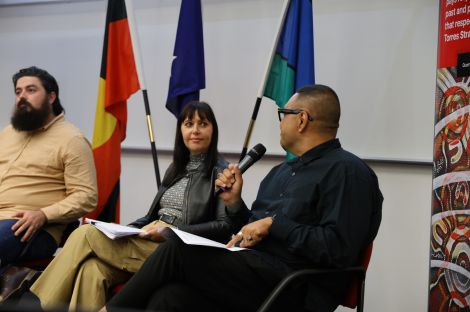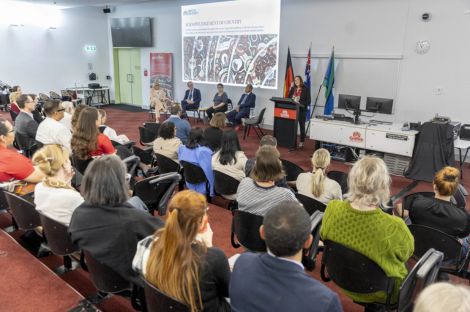At Griffith, we recognise that reconciliation is everybody’s business
Griffith’s Reconciliation Statement acknowledges that reconciliation is a shared process where every student and staff member have a role to play in effecting positive change in building a better, more inclusive Australia. We hold ourselves accountable to the belief that reconciliation is everybody’s business.
National Reconciliation Week is a time to learn about our shared histories, cultures, and achievements, and to explore how each of us can contribute to achieving Reconciliation in Australia.
The dates for NRW remain the same each year; 27 May to 3 June. These dates commemorate two significant milestones in the reconciliation journey—the successful 1967 referendum, and the High Court Mabo decision respectively.
National Reconciliation Week
Learn about the history and significance of National Reconciliation Week, and download resources for you to use and share.
2025 Bringing Now to Next
The theme for 2025, Bridging Now to Next, reflects the ongoing connection between past, present and future. Bridging Now to Next urges us to look ahead and continue the push forward as past lessons guide us.
In the #NRW2025 theme artwork, native plants—known for regenerating after fire and thriving through adversity— symbolise our collective strength and the possibilities of renewal. This is a time for growth, reflection, and commitment to walking together, honoring the resilience and ongoing flourishing of Indigenous cultures.
As we take these steps together in the spirit of reconciliation being everybody’s business, we encourage the Griffith University community to actively contribute by organising their own meaningful events and actions that embody the 2025 National Reconciliation Week theme—Bringing Now to Next.
National Sorry Day
National Sorry Day is held every year on May 26 to recognise the Stolen Generations and acknowledge the mistreatment of Aboriginal and Torres Strait Islander People who were forcibly removed from their homes and communities.
Check out the 2025 Sorry Day panel event "Indigenous Flourishing" which explores what it means for Indigenous Australians to flourish within university settings: not just surviving—but thriving.
Indigenous Flourishing - a panel conversation
Watch previous panel discussions

2024: Truth-telling, now more than ever
Hear from our panelists on why truth-telling and healing are such important steps towards true reconciliation in Australia.

2023: A Voice for Future Generations
This panel discussion, led by Griffith experts, focused on the Voice to Parliament referendum and providing a voice to future generations.
Contact us
Deputy Vice Chancellor (Indigenous), Griffith University, Logan, University Drive, Meadowbrook QLD, 4131